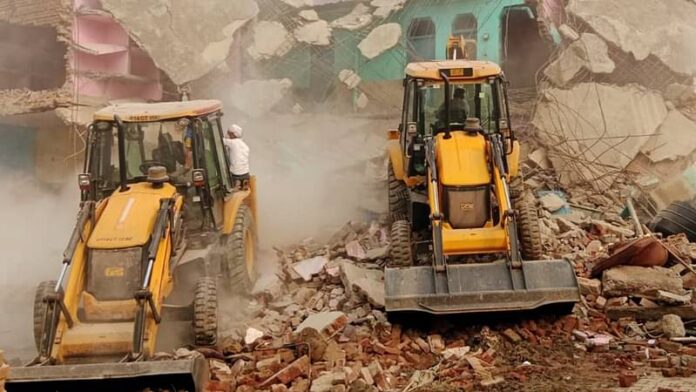In a pivotal ruling, the Supreme Court of India declared that demolishing the homes of individuals accused in crimes as a form of punishment without proper legal process is unconstitutional. The two-judge bench, comprising Justices BR Gavai and KV Viswanathan, emphasized that “rule of law is the foundation of democratic governance” and underscored the importance of judicial oversight in determining guilt.
Delivering the judgment, Justice Gavai stated, “If an executive demolishes the house of a person arbitrarily merely because he is accused, it violates the principle of separation of powers.” He emphasized that any demolition without proper authorization from relevant authorities would be deemed “completely arbitrary.”
This ruling was prompted by a series of petitions challenging the use of demolitions as punitive measures, a practice that has become increasingly common. The Supreme Court set forth nationwide guidelines to prevent unauthorized demolitions, marking a significant step in reinforcing the principle of due process. The guidelines stipulate that any demolition of properties must follow established legal procedures, especially when an accused person is involved.
In a previous judgment, the Supreme Court criticized the Uttar Pradesh government for the “high-handed” demolition of a home in Maharajganj district in 2019, describing the bulldozer action as “simply unacceptable.” The state was ordered to compensate the petitioner with Rs 25 lakh after the home was demolished to make way for a road project. The Court condemned the lack of notice or adequate time for the occupants to vacate the premises, describing it as an affront to citizens’ fundamental rights.
In another significant instance, the Supreme Court halted demolition drives without its express permission until October 1, with the order excluding unauthorized constructions on public property, including roads, water bodies, and railway tracks.
Senior advocate Dushyant Dave, representing some petitioners, highlighted the growing trend of state governments using demolitions as punitive measures against the accused, stressing that the right to a home is integral to the right to life under Article 21 of the Constitution. His remarks were echoed in the September 2023 hearings on a batch of petitions, one of which was filed by former Rajya Sabha MP Brinda Karat, urging the Court to declare that “bulldozer justice” as punishment violates fundamental rights.
This landmark decision reinforces that under India’s constitutional framework, any act bypassing due legal process to penalize alleged offenders undermines democratic principles.



